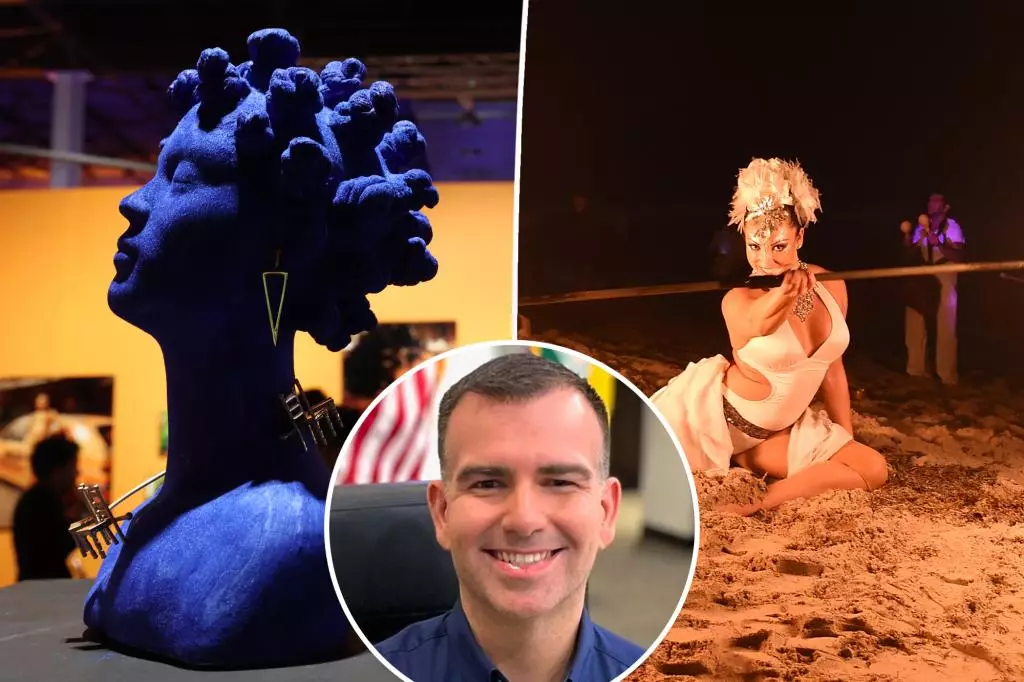In Miami Beach, where glamour meets chaos, a fierce legal battle is brewing between affluent residents and city officials over the regulation of extravagant parties. This clash encapsulates the tension between cultural celebrations and the need for public safety amid growing concerns from the community. With Art Basel around the corner, the stakes are high for those looking to throw lavish gatherings, but the city’s recent crackdown on commercial-grade events has elicited not just concern, but a full-fledged legal response.
Three notable figures from the affluent Palm, Star, and Hibiscus Islands — plastic surgeon Leonard Hochstein, Farmasi CEO Sinan Tuna, and party enthusiast Daniel Vincent Liburdi — have united against a recent city resolution mandating special permits for large parties. This new rule, instituted on November 20, requires events featuring dance floors, sound systems, and elaborate decorations to undergo stringent approvals. The trio argues that these regulations are not just an inconvenience but an infringement on their rights to celebrate in style, pointing to the hefty sums they’ve invested into their annual soirees, estimated at a staggering combined total of $4 million.
In their emergency motion for a temporary injunction, the homeowners assert that their lavish celebrations not only contribute to the local economy but also enhance the cultural tapestry of Miami Beach. Hochstein himself has reportedly spent upwards of $300,000, while Tuna’s expenditures have reached an impressive $1.7 million — statistics that underscore just how critical these events have become in their social calendar.
However, Miami Beach’s Vice Mayor Alex Fernandez has taken a firm stance against the homeowners, asserting that their events have historically produced significant disturbances in the neighborhood. Complaints from local residents about noise pollution and congestion have echoed through the community, prompting the city to act in what they describe as a necessary measure to safeguard public safety and resident quality of life.
Fernandez argues that these high-profile parties often create hazardous conditions, as narrow streets become clogged with traffic and large crowds, impeding emergency services’ access. He firmly believes that while the city enjoys the vibrancy brought by events like Art Basel, they must prioritize the needs and safety of its residents—particularly families and children living nearby.
As this legal tussle unfolds, the city has not shied away from its position that unsanctioned parties can compromise the very essence of what Art Basel represents: cultural enrichment devoid of chaos. In making this argument, Fernandez labels such events as exploitative, alarmingly detached from the artistic atmosphere that helps Miami Beach thrive. “These unauthorized events undermine the reputation of Art Basel, which we fully embrace,” he points out, emphasizing that controlled gatherings aligned with the event’s values will ultimately bolster the district’s reputation rather than tarnish it.
Supporting this viewpoint, many residents have voiced their frustration over past events, including last year’s infamous gathering at Hochstein’s residence, which spiraled into pandemonium. With uninvited guests crashing parties and traffic snarls turning neighborhood roads into bottleneck situations, it’s clear why there’s mounting pressure from the community to rein in these extravagant festivities.
With a hearing scheduled imminently and legal arguments intensifying, the stakes couldn’t be higher for both the affluent trio and city officials. Hochstein’s high-profile parties are not just social events; they are significant investments in Miami Beach’s cultural landscape. Yet, the question looms: Is it feasible to marry the liberties of high society with the solemn need for public safety?
Residents may find themselves torn between the allure of glittering events and the occasional reality of disrupted lives. Yet, as discussions continue, a solution must be reached that accommodates the need for celebration while respecting the sanctity of community well-being.
As Miami prepares for the well-anticipated Art Week from December 6-8, the outcome of this legal dispute might reshape the way parties are hosted in one of the most vibrant cities in the world. The next chapter in this saga may determine whether Miami Beach can retain its reputation as a cultural hotbed without sacrificing the peace of its residential communities.
